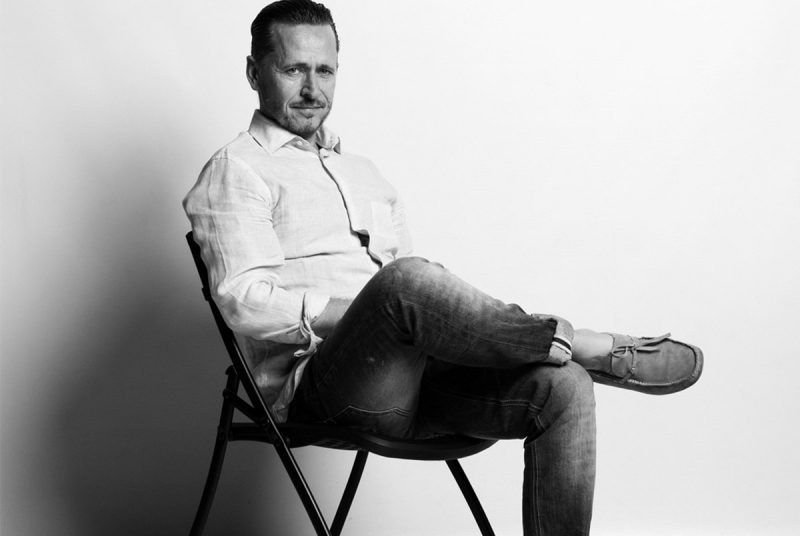Personal development guru Gary John Bishop has a piece of advice for people who are stalled in their self-development journey: ‘Get out of your own head’
Are you ready to push beyond your limits? It’s likely there’s only one thing that’s stopping you: you. Or more precisely, the negative self-talk that’s constantly running through your head, according to Gary John Bishop, one of the world’s leading personal development experts.
“The trick to getting what you want out of life is completely in your own hands,” says Bishop, who penned the New York Times best-seller, Unfu*k Yourself: Get Out of Your Head and Into Your Life. “To transform yourself, you simply have to transform your mind.”
Bishop is a native of Glasgow, Scotland, whose own self-help journey led him to becoming a senior product director for one of the world’s leading personal development organizations before striking out on his own in 2014 as a speaker and author.
Bishop takes an “urban philosophy” approach to life mastery; he doesn’t sugarcoat things. “You change your life by doing, not by thinking about doing,” he wrote in his first best-selling book.
We sat down with Bishop to get a better understanding of how to stop overthinking and start getting things done. Here’s what he had to say.
How did you first become interested in the connection between mindset and performance?
Thirteen years ago, I was invited by a relative to participate in a personal development workshop. Boy, was it revealing! It opened my eyes and started me on a pathway of self-development.
As I started to develop myself and tell people about it, one thing quickly became apparent: My philosophy was a little bit different than other people’s in the self-development space.
Eventually, I decided to take what I’d learned and write my first book so that I could help more people.
My approach is to speak to people in a language they use rather than introducing a whole new way of talking or a fancy new strategy or system. I’ve taken a lot of the new age mysticism of developing yourself and made it simple and real for people.
How do you define ‘mindset’—and why is it so important?
Mindset is basically just a way that you see things. The way that you see things is driven by the way you talk to yourself and others. You’re never up against life, you’re always up against how you see life. How you’re seeing the challenges in front of you – your mindset – is absolutely everything. For instance, if your mindset is that certain things you want to do are ‘too challenging,’ you’ll back away from doing those things.
How can a negative mindset sabotage your efforts?
You have to realize the way you see things is completely intertwined with what you do. If you perceive something as too challenging, you’ll lose the opportunity to do something positive.
People need to catch themselves in these negative moments, where they’re going down the familiar path of saying, ‘I can’t do this’ or ‘this is too hard.’ That way of thinking is not real life, it’s how you interpret life. You need to interrupt that pattern of thinking.
So, how to rid yourself of that negative self-talk?
Don’t wait until you’re thinking that everything is perfect and great. Embrace what is already there. If you tell yourself that something is hard or shi**y, recognize it as so, but take small steps to do it anyway. Say to yourself, ‘Okay, I’m feeling this is hard, but what are some simple actions I can take, compared to what I typically do?’ Those new steps should be considered victories. For some people, just getting out of bed in the morning is a victory. If you start putting some of these little victories together, good things are going to happen. You start to recognize yourself as someone who’s going to be able to do things even when you view them negatively.
How can you use this shift in mindset to set goals?
Start by making promises to yourself. A promise is like a sacred bond. I’ve coached a lot of very successful people, and here’s what I’ve noticed. For those people that have been successful in life, you see that unbreakable bond in what they said they’d do and what they actually did.
You don’t need willpower or some crazy skill. Just build a catalog of little promises you hold yourself to every day. Know yourself as somebody who, when you say you’re going to do something, you do it.
How do you set yourself up to achieve a big goal in life?
Sometimes we get really excited about the big things we want to achieve. You’ll say, ‘I’m going to lose 80 pounds,’ and then you’re confronted with the reality of how difficult it is to lose the first two. Or you want to put $1,000 in your savings account, but you know you’re only starting with $20. It’s easy to get deflated. If you decide to take on a big gain, start to break it down into pieces. Say to yourself – or better yet, write it down – ‘Here are the first things that need to get handled.’
But everyone gets overwhelmed or hits a plateau once in a while. What should you do in those cases?
If you’re after something new and it’s suitably demanding of you, it would be weird not to doubt yourself. What would be inappropriate would be to let it stop you completely. Instead, look back in your life and think of all of the occasions where you’ve done things you couldn’t do. Then, recognize that you’re feeling negative about doing something, but push through and do it anyway.
Is that the key — pushing through something even though you don’t know if you can do it?
Yes! A lot of people wait to do something until they’ve gained the confidence to do it. But I always tell people you have to do something even though you have self-doubt. Why? Because confidence only arrives in the aftermath of the results you produce.
Part of my gripe with a lot of personal development work is that everybody should be happy, positive and confident all of the time. I like feeling that way, too, but I don’t lose my sh*t if I don’t have those things.
If you’re somebody who can function and produce when you’re at your lowest, just think what you can accomplish at your best.
Here are three Bishopisms. Jot down your favorite quotes and put them in a visible place to give yourself a motivational boost.
“You have the life you’re willing to put up with.”
“Love the life you have, not the one you expected to have.”
“Our biggest successes are born out of discomfort, uncertainty, and risk.”


